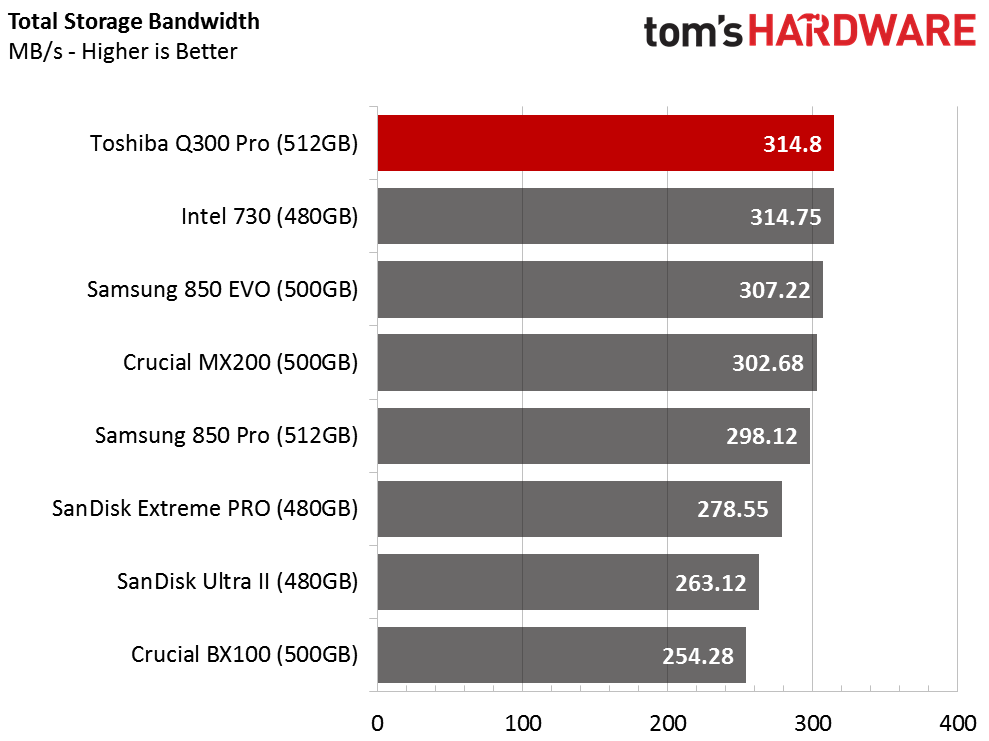Toshiba Q300 Pro 512GB MLC SSD Review
Toshiba recently launched two new SSDs for the entry-level and mainstream markets. Today, we look at the top-tier MLC-based Q300 Pro and find that it could be a serious contender in the market.
Why you can trust Tom's Hardware
Real-World Software Performance
PCMark 8 Real-World Software Performance
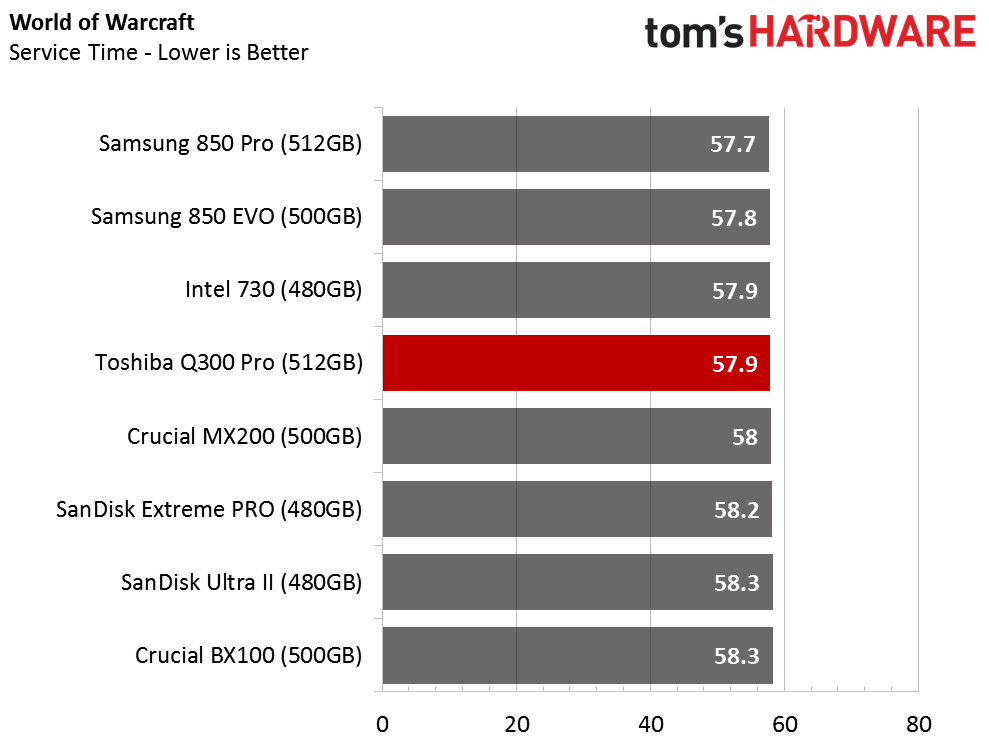
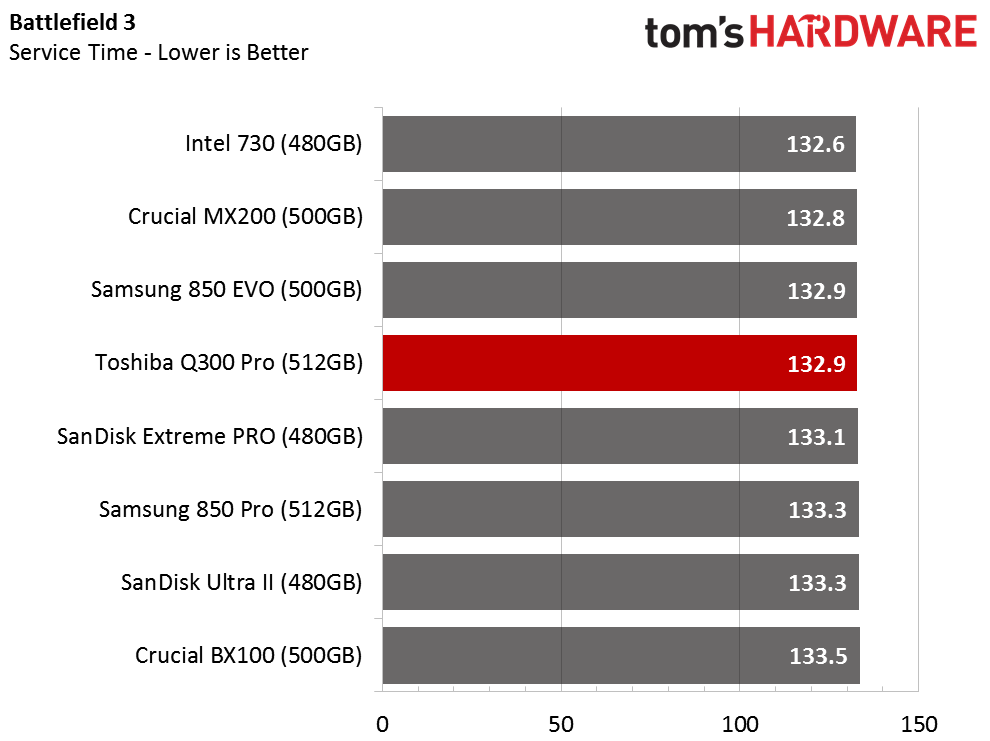
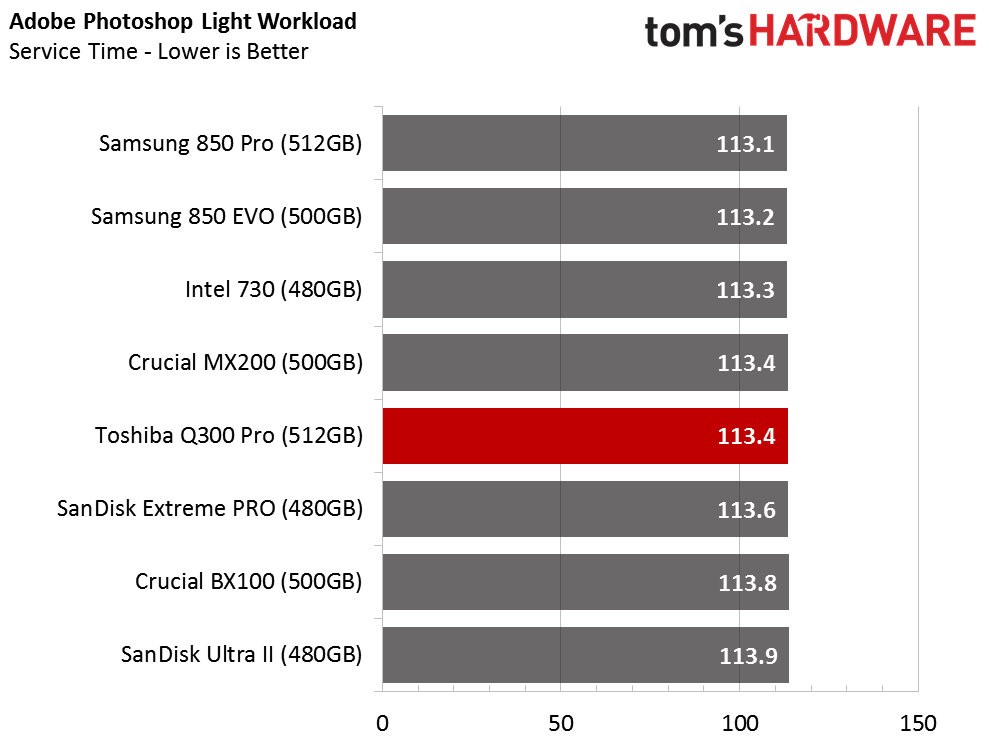
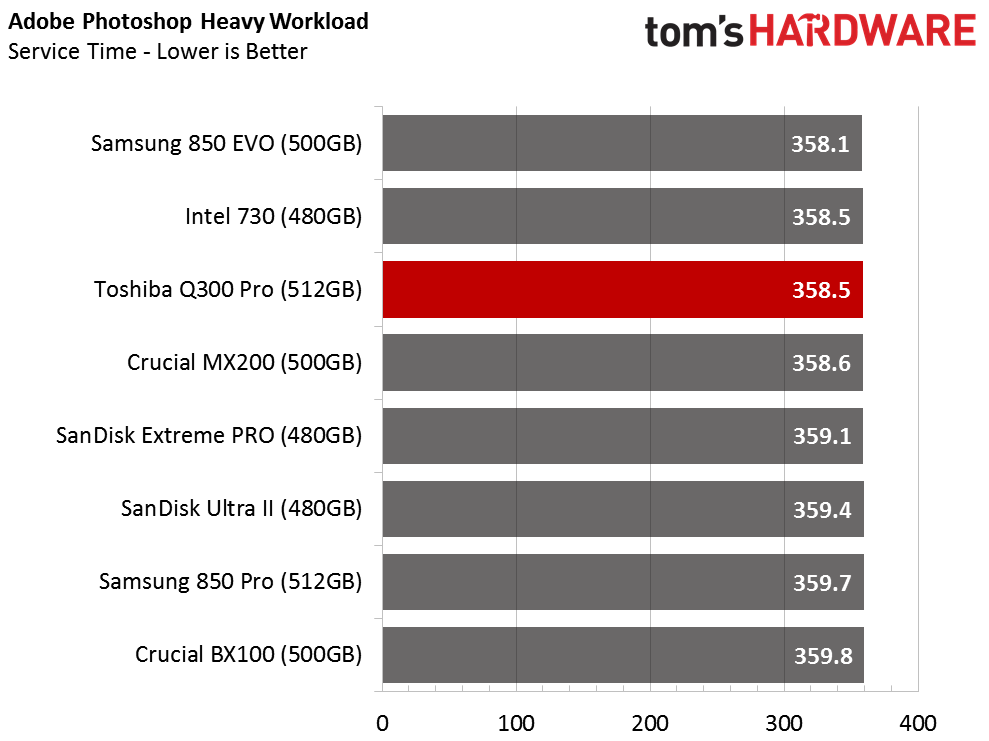
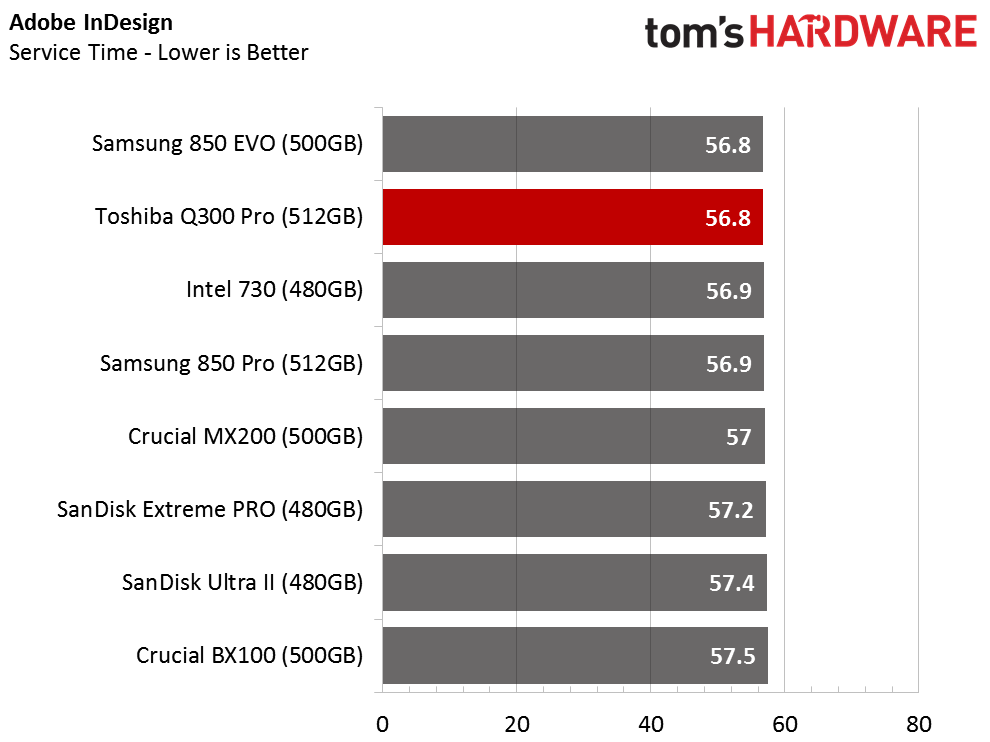
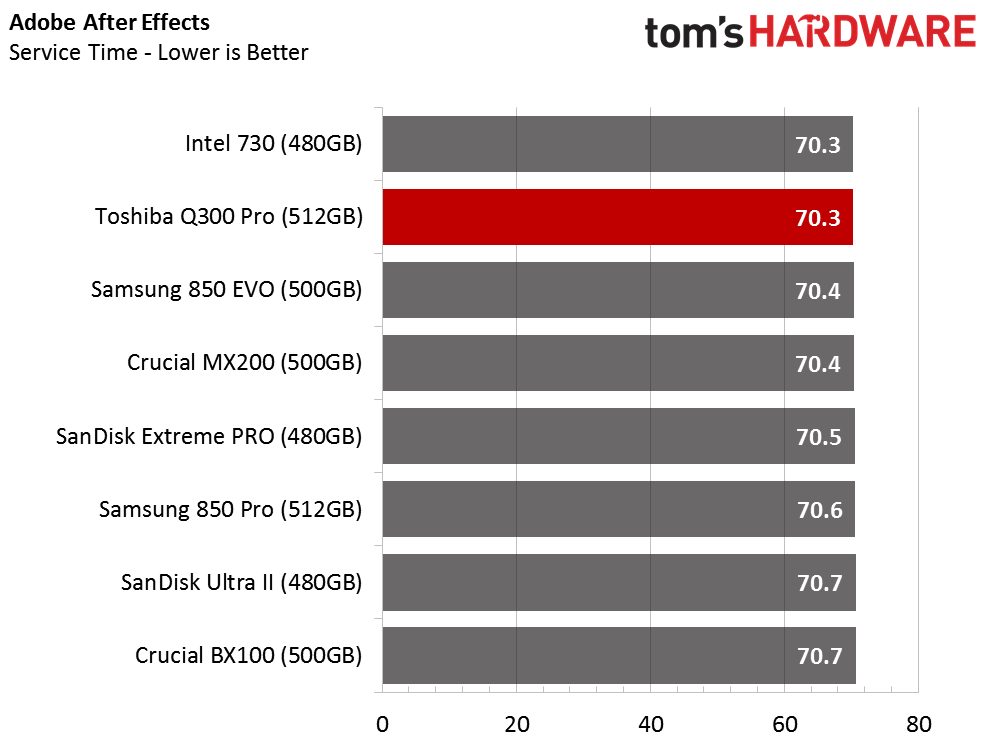
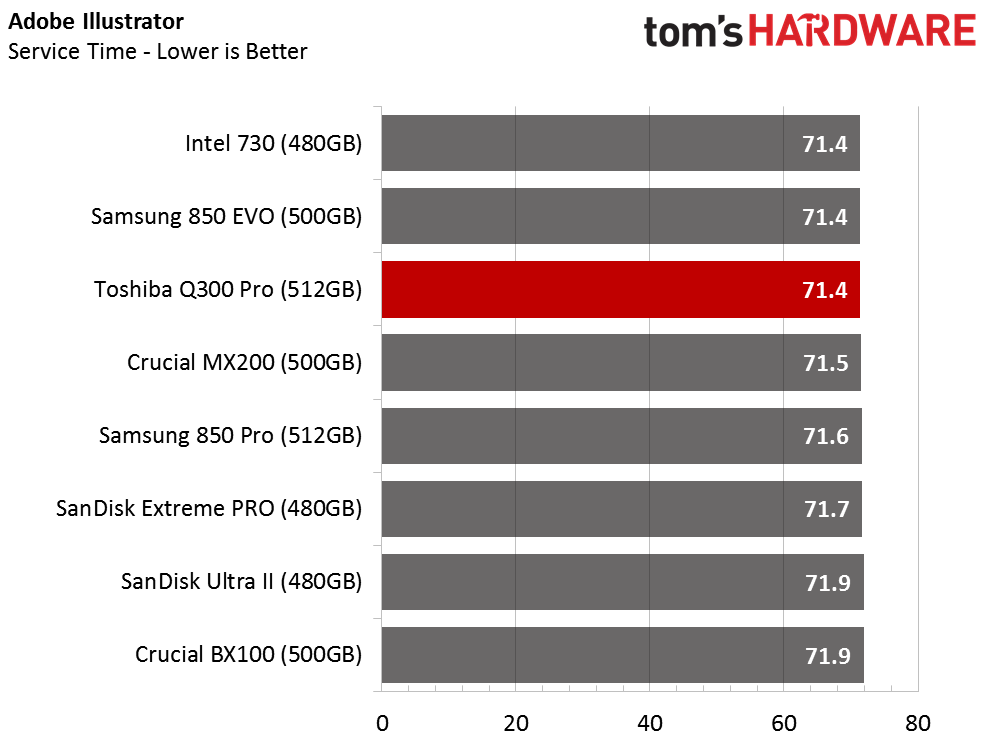
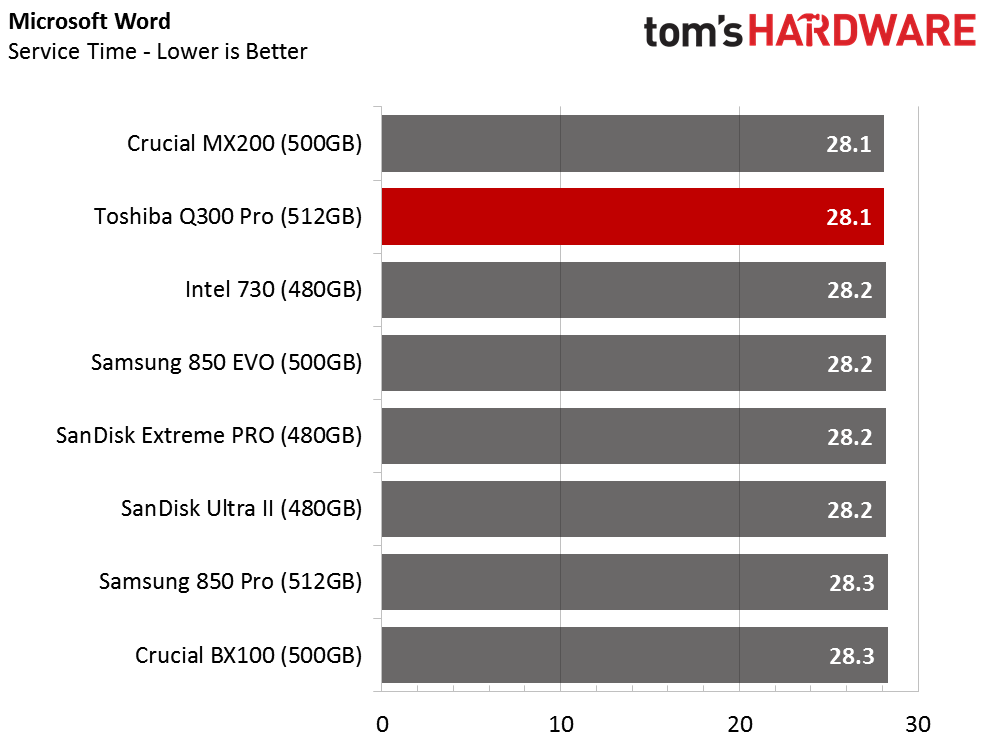
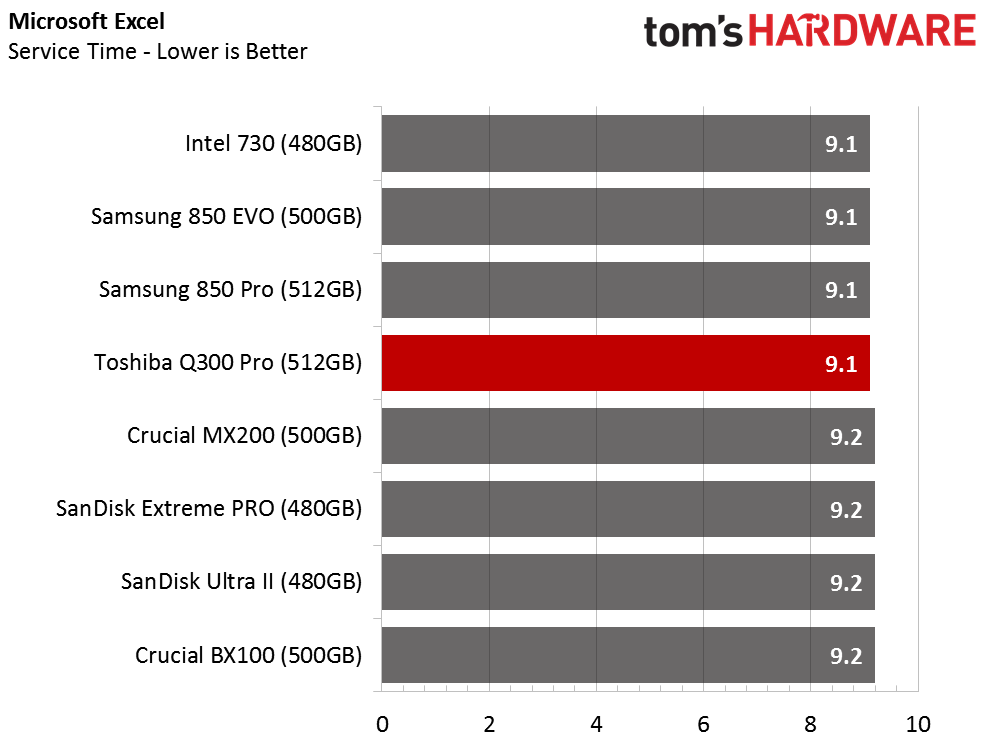
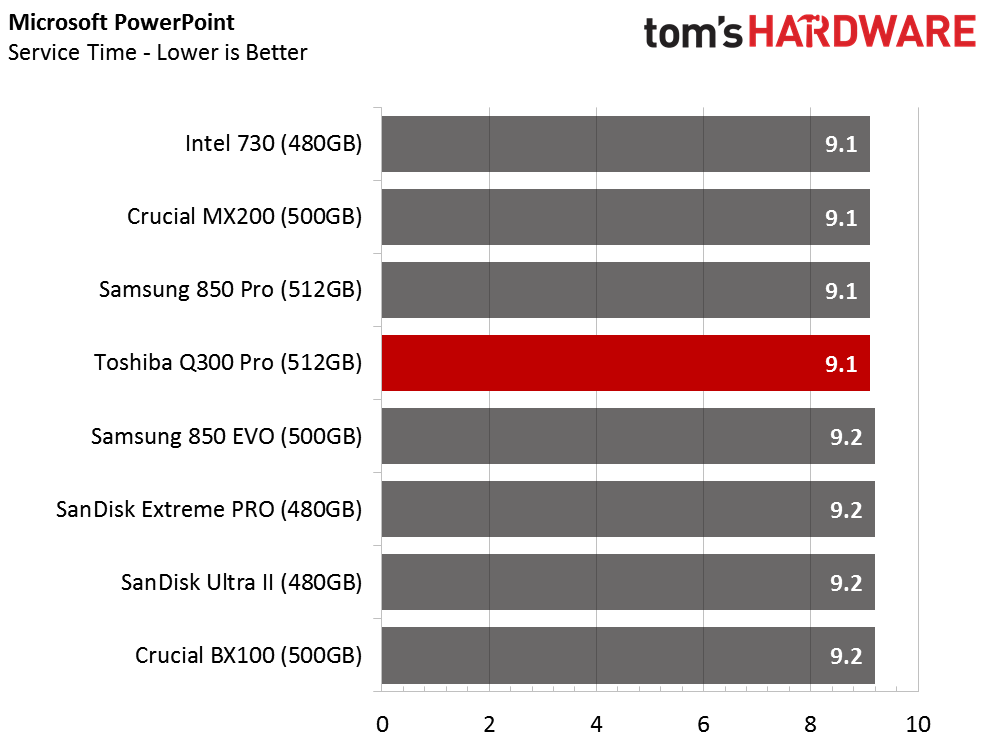
If we choose to ignore the completion time, Toshiba's Q300 Pro looks like a mid-range drive. It ties the competition in several workloads, or it sits just under a slightly faster model.
A look at combined performance in throughput shows the 512GB Q300 Pro outperforming every other charted drive in real-world software workloads. What we're actually seeing here is superior sequential mixed workload performance running the Q300 Pro up this chart. The drive was designed and tuned for real-world software. Sometimes that means weak numbers in the synthetic tests. But here's where it all pays off.
PCMark 8 Advanced Workload Performance
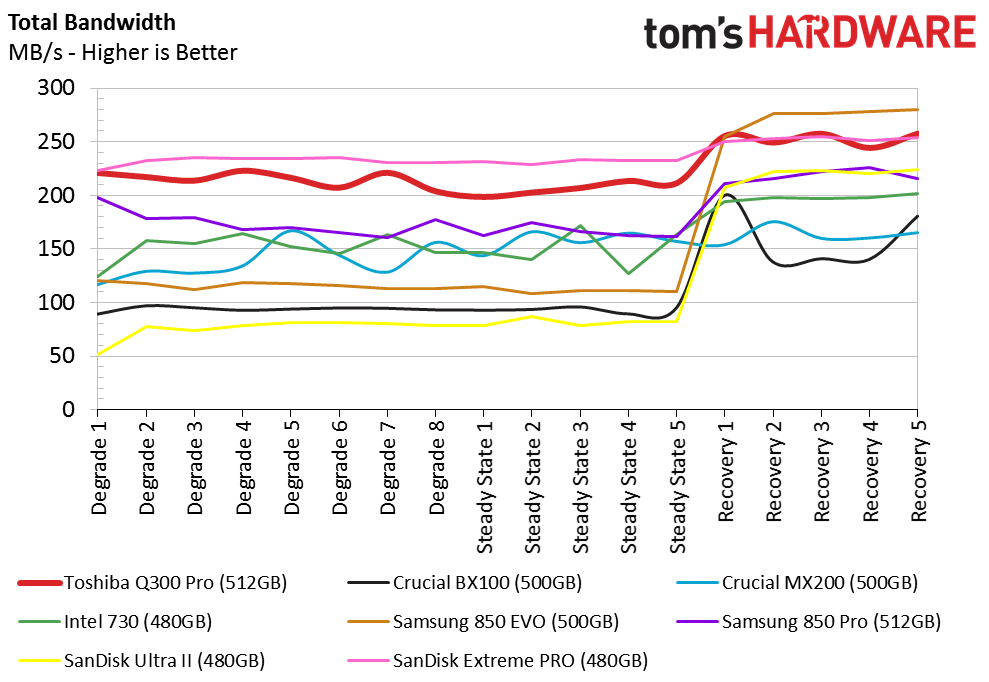
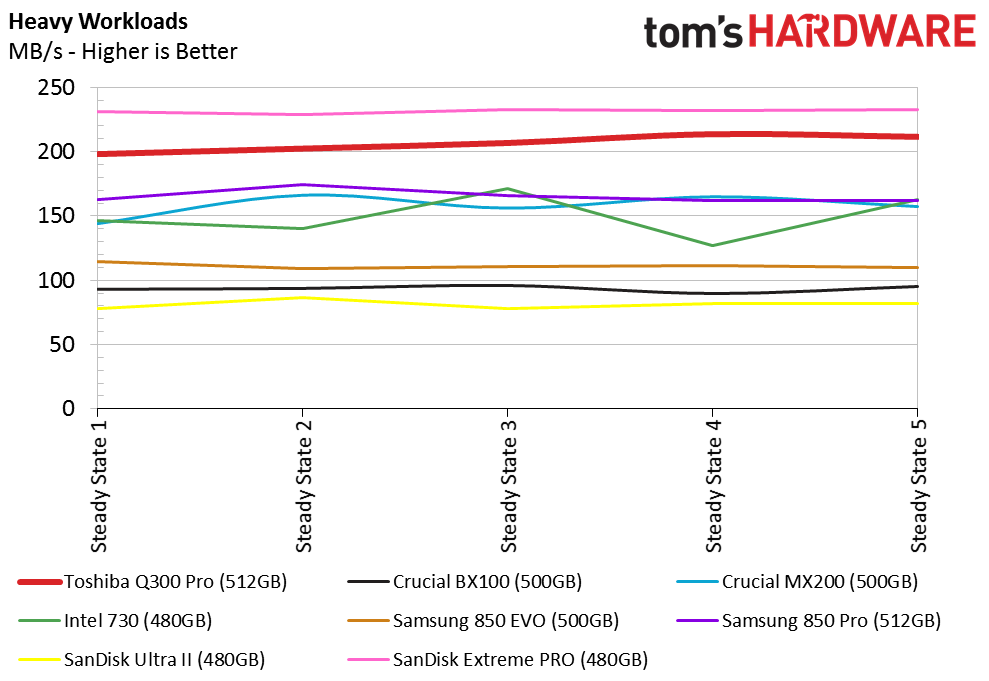
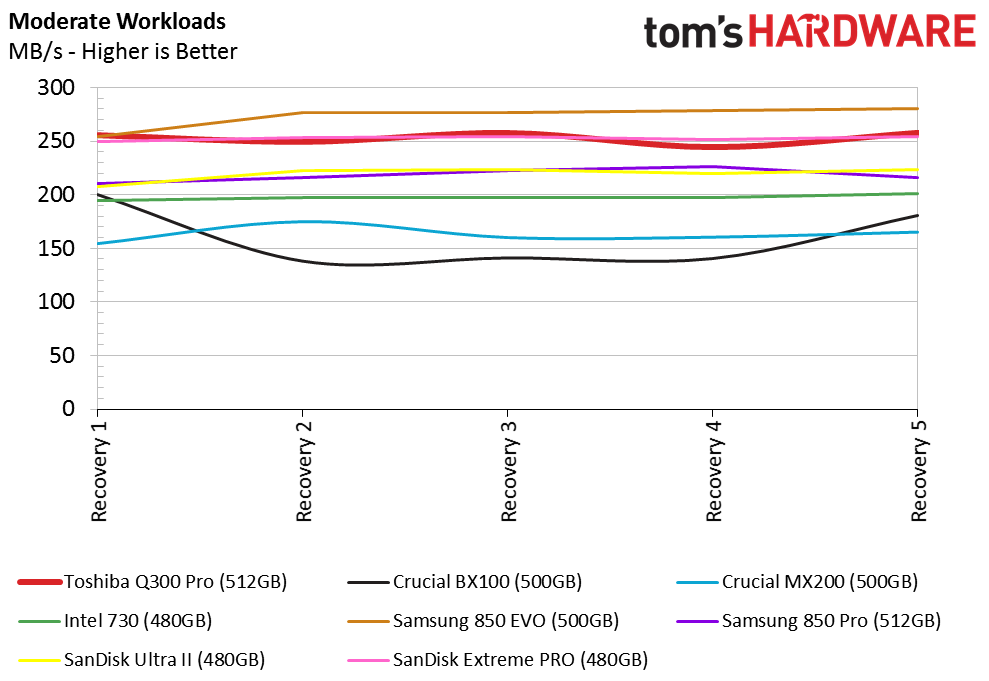
Now we get to see the Q300 Pro's performance after heavy writes. I have to admit that I am surprised at how well Toshiba tuned the Q300 Pro, and the level of performance it can sustain after being driven to workstation-class wear levels. Although Toshiba's previous client SSDs were not bad, they certainly weren't this good.
The Q300 Pro falls just under SanDisk's Extreme Pro in heavy use. If you write a lot of data in a workstation environment but do not fill the drive completely, this SSD could be a good choice for you. As the workload eases up, the Q300 Pro fares just as well as the Extreme Pro (though both are a little slower than Samsung's 850 EVO).
Service Time
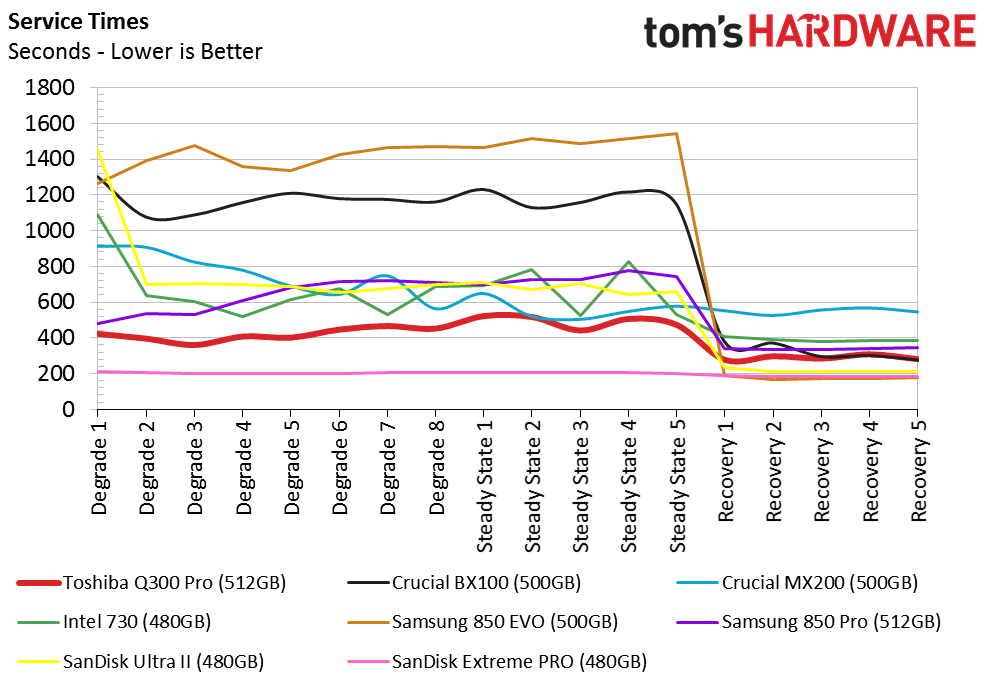
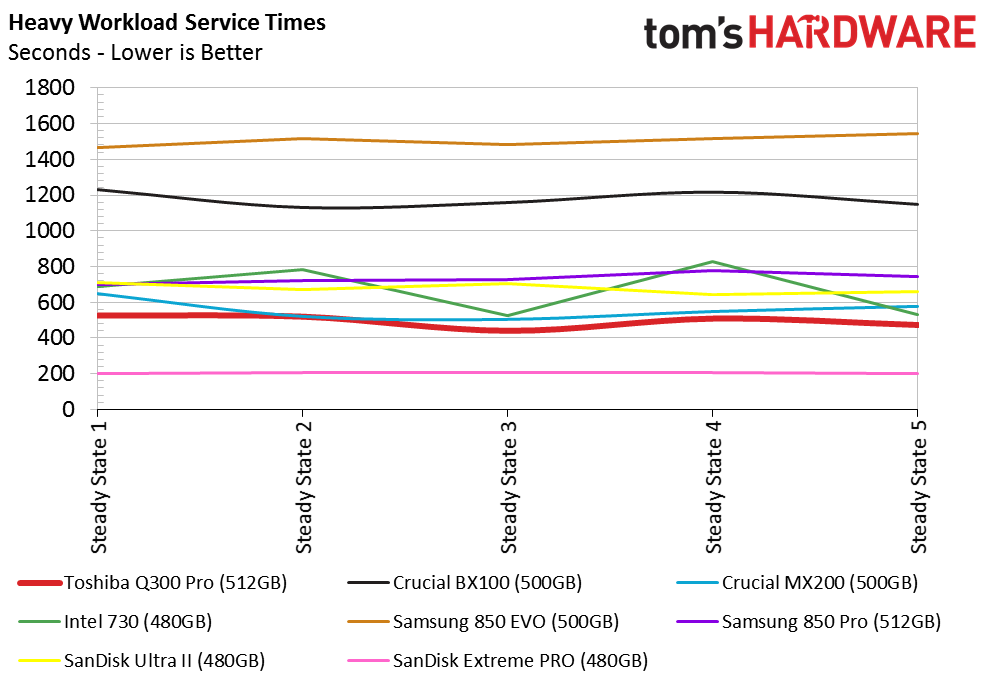
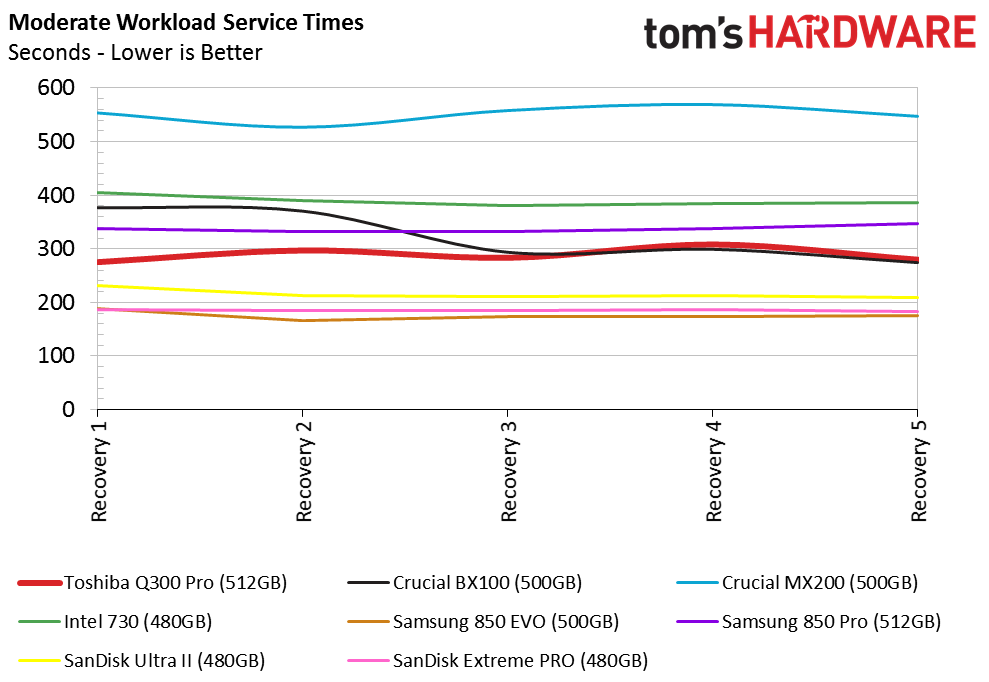
The Q300 Pro's service times are also very good. We see a little more separation between SanDisk's Extreme Pro and today's test subject compared to the throughput test, though. Under lighter use, a few competitors overtake the Q300 Pro, so it's fair to say that Adaptive SLC isn't as strong as we'd like.
Notebook Battery Life
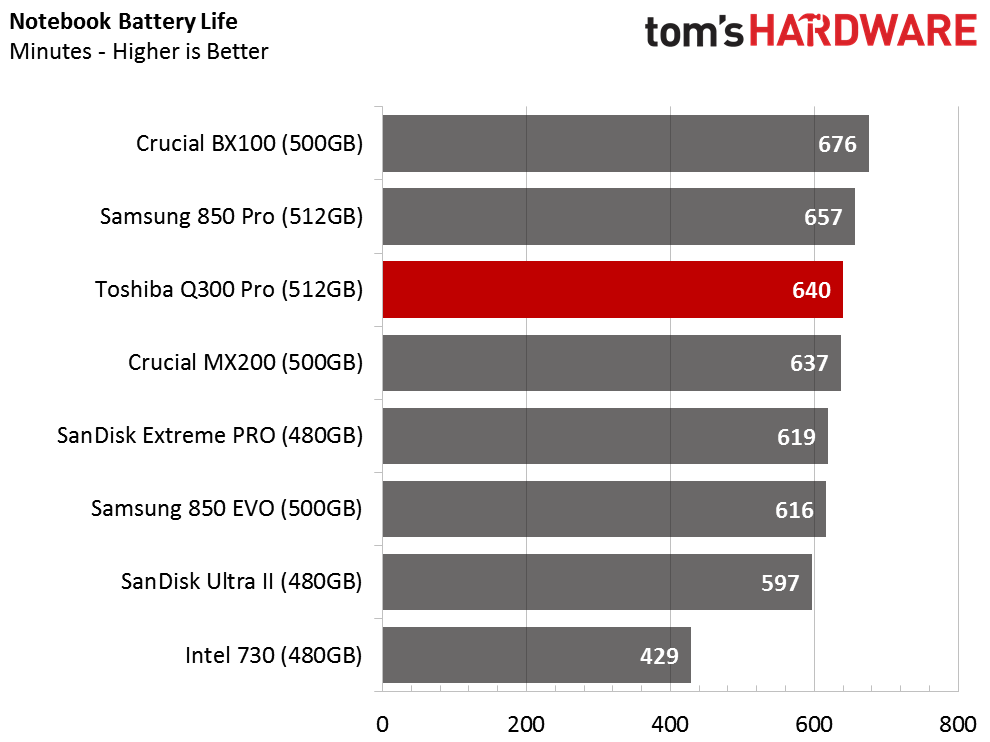
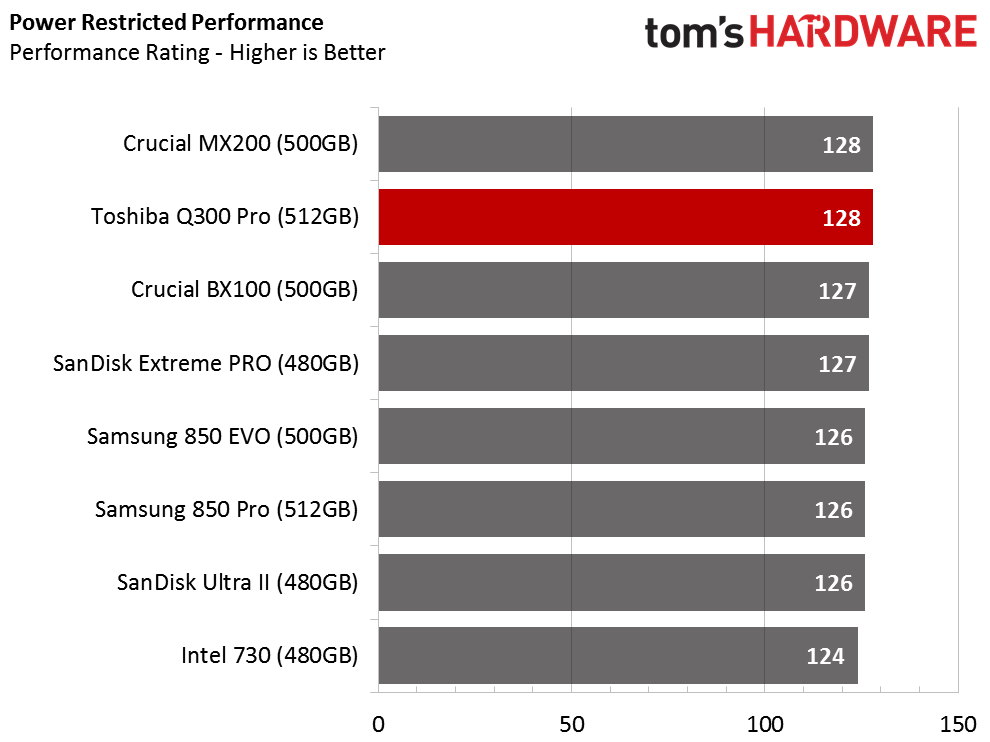
The Toshiba Q300 Pro delivers plenty of notebook battery life, but fails to hit the high levels achieved by Crucial's discontinued BX100 and Samsung's 850 Pro.
Get Tom's Hardware's best news and in-depth reviews, straight to your inbox.
Current page: Real-World Software Performance
Prev Page Mixed Workload And Steady State Next Page Conclusion
Chris Ramseyer was a senior contributing editor for Tom's Hardware. He tested and reviewed consumer storage.
-
apache_lives When iI think Toshiba SSDs i think OCZ. OCZ is rubbish, do i trust this Toshiba product? NOReply -
stirrupchup Thanks for the review.Reply
I ended up skipping this drive and going for another one, and having read this review, I'm kinda glad I skipped it. Seems to be nothing special, and not worth the price. -
mortsmi7 "In this market, to sell products you need to either have the fastest SSD or offer the best value."Reply
I guess I'm the only one that prefers reliability over either of those factors, especially for a system drive. All SSD's fall under the fast category, that there is good enough for me. And as far quality is concerned, you get what you pay for to a certain extent. -
kalmquist The 256GB Q300 Pro is currently selling for $100, which is less than half the price of the 512GB unit reviewed here. That doesn't make any sense if both drives use the same controller and only differ in the abount of flash memory installed.Reply
-
3ogdy apache_lives. That was EXACTLY may thought. And yeah, yeah, yeah. "Enough with the FUD already...", but the stuff is there. The thing is, Toshiba actually deserves a chance. If problems arise, it's Toshiba's customer support you have to deal with, not OCZ. Moreover, this is a Toshiba product entirely, I believe, which should be at the other end of the spectrum when compared to utter crappy products from OCZ. People over at OCZ should look up "reliability" in a dictionary, ffs.Reply -
ssdpro +1 to OCZ being awful. I wouldn't trust Toshiba if they tolerate OCZ. I mean come on, their ARC 100 and Radeon drives had 0 day defects with ass-bottom reviews. Their Trion drives get 2 or 3 stars out of 5 at Amazon and Newegg. Ben from OCZ support responds to people with form responses that are ridiculous. Customer - "Drive died after 3 weeks, don't purchase" OCZ - "We value your purchase. Did you check the sata cable and update the firmware?" Come on guys, if there are a dozen reviews of dead drives stop responding with form spam and saying it is fixed with a firmware update. Firmware updates help replacements but don't mitigate the failure.Reply -
blazorthon Reply+1 to OCZ being awful. I wouldn't trust Toshiba if they tolerate OCZ. I mean come on, their ARC 100 and Radeon drives had 0 day defects with ass-bottom reviews. Their Trion drives get 2 or 3 stars out of 5 at Amazon and Newegg. Ben from OCZ support responds to people with form responses that are ridiculous. Customer - "Drive died after 3 weeks, don't purchase" OCZ - "We value your purchase. Did you check the sata cable and update the firmware?" Come on guys, if there are a dozen reviews of dead drives stop responding with form spam and saying it is fixed with a firmware update. Firmware updates help replacements but don't mitigate the failure.
Trion 100 is horrible, Trion 150 is slightly better but still not great. As far as I'm concerned, only Samsung has a TLC drive even worth considering.
Is this what you're referring to by issues with Arc 100 and Radeon?
http://www.anandtech.com/show/8965/ocz-releases-critical-firmware-updates-for-arc-100-radeon-r7-ssds
Most of the reviews I read on Arc 100 were very positive, so I bought one about a year ago and haven't had any problems with it. Mine is a 240GB model, this article says that the 480GB models were the ones with issues, maybe that's why. Still, so far, this is the only problem I've read about with Arc 100 drives. Are there other issues?
